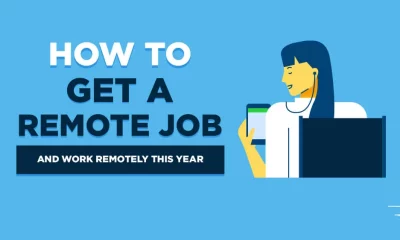Jobs
The leading employer in Canada is PEO Canada.

The leading employer in Canada is PEO Canada.
According to EY’s PEO Survey Report, PEO Canada – Employer of Record was ranked as the top employer of record in Ontario for the first time, with 91 percent of survey participants describing their interactions with the company as upbeat or very optimistic. This ranking confirms that PEO Canada – Employer of Record has consistently provided exceptional service to its clients since its initial launch in Canada in 2010. It is based on the opinions of 132 service providers who took part in this annual EY survey.
Describe PEO
Who employs PEOs? Small firms often employ the services of a PEO since they cannot afford to engage an HR staff on their own. By outsourcing administrative services, they gain from greater productivity and time savings. For instance, it is much simpler for a PEO to fill staffing needs when employees call in sick or experience personal emergencies than it is for small business owners who are juggling a variety of other tasks.
The largest employer of record in Canada is PEO Canada.
Finding the ideal working arrangement for workers is a top priority for Canadian businesses. With the development of technology, many businesses have discovered a fresh approach: working with PEOs (Professional Employer Organizations). Being the primary employer of record for more than 10,000 Canadian businesses, PEO Canada is a pioneer in this industry.
Through these partnerships, businesses can hire PEOs like us to handle their payroll, benefits administration, and other human resource requirements. Additionally, it offers them access to our superior industry knowledge of workplace laws and safety problems. It is wise to compare prices before choosing a provider to handle your company’s HR requirements because all of these services have a cost.
PEO Canada provides a variety of advantages and services.
Professional Employer Organization (PEO) Canada assists entrepreneurs and small businesses in becoming their employees’ official employers. It offers a wide range of advantages and services, such as bookkeeping, payroll administration, health insurance, legal support, and more. Some business owners may be shocked to hear that PEO Canada handles all of the process associated with becoming an employer on your behalf.
Employment Contracts in the Context of Canada
Please consider how much time each recruit will need to learn about the specifics of each region. It is strongly advised to have a formal employment contract even if it is not required under Canadian law. The majority of employers and workers choose to formalize the terms of the working relationship via written employment contracts. The primary restraint that must be imposed on the terms of an employee’s employment contract is adherence to the fundamental principles established in employment standards.
Since both French and English are widely spoken in Canada, the nation is really multilingual. Except for Quebec, Canada, there are no laws limiting the wording used in employment contracts elsewhere. Except for Quebec, the majority of employment contracts are written in English throughout the nation.
Hours of Work in Canada
The number of hours that may be worked is restricted by the employment standards laws in each country. Most countries set limitations on the number of hours worked per week. Regulations in each jurisdiction provide exceptions to the maximum number of hours that may be worked, depending on the job sector and function.
Even though there are considerable variations in overtime laws and work hours throughout Canada, the majority of jurisdictions have established an overtime rate that is equivalent to one and a half times an employee’s regular pay rate.
In Ontario, the starting entitlement is 44 hours, compared to 40 hours in Québec. Employees who oppose to or reject extra work may not be fired or deported, nor may employers refuse to pay overtime rates or demand that they work excessive hours.
Vacation Days in Canada
The majority of employees are eligible for a paid annual vacation. Employees in British Columbia, Alberta, Manitoba, Ontario, and Québec are entitled to two weeks of paid leave after one year of employment. There are some differences throughout the country with regard to rights and eligibility. The majority of companies provide 2-4 weeks of paid vacation, depending on the kind of company and the employee’s seniority. We normally anticipate seeing 3 to 4 weeks of vacation time for most professional-level employment (plus public holiday days).
In Canada, it is illegal to use or dispose of leaves. It is possible for an employee and the employer to come to an earlier arrangement to carry over vacation days to the next year. Untracked/limitless PTO is very rare in Canada and presents some significant challenges.
U.S. Sick Leave
The majority of Canadian provinces do not provide paid sick days. If necessary, paid long-term sick leave is offered through Employment Insurance, Canada’s national social insurance program.
The maternity and paternity leaves in Canada
Paternity leave is only offered to fathers in Quebec, although parental and maternity leave rules in Canada are quite generous. Depending on the province, the typical absences for parental leaves vary from 61 to 63 weeks, while maternity leaves last around 17 weeks. On vacation, parents who meet the requirements can apply for government-funded employment insurance benefits.
Final Words
The PEO model enables small to medium-sized businesses to benefit from the strength and knowledge of a large organization. PEO Canada offers its members an Employer-of-Record service, which designates them as the employer for all intents and purposes of state and federal labor laws.












